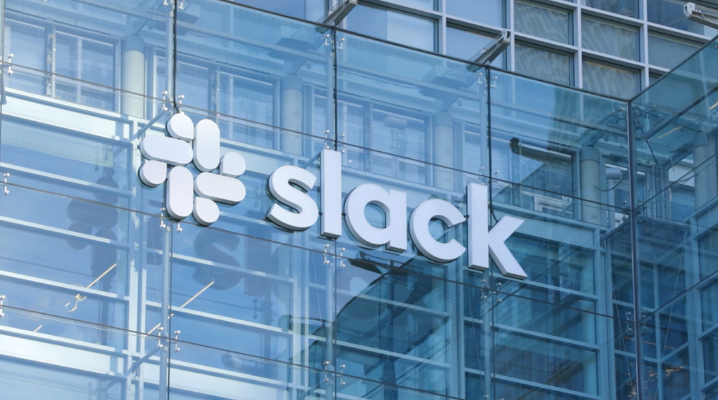 AI
AI
 AI
AI
 AI
AI
Salesforce Inc. today announced that its collaboration platform Slack will be getting native conversational artificial intelligence integration with Slack GPT, building the AI directly into the chat interface.
With Slack GPT the new features will use generative AI and the ability to access company customer data directly from Salesforce’s customer relationship management systems such as Customer 360 and Data Cloud. The aim is to change how people work and collaborate.
The service uses generative AI, a similar technology to what underpins OpenAI LP’s chatbot ChatGPT, which is capable of answering questions and holding humanlike conversations. Through this technology, workers in Slack can quickly summarize conversations and receive writing assistance on the fly with the click of a button.
For example, Slack has a type of multi-person chat called a “huddle” where a group can form its own public chat room in order to hold an informal conversation on a particular topic. After that chat is completed, it would then be possible to use Slack GPT’s integration to summarize the conversation with a single click to save time and energy instead of having someone write it up.
The AI assistant is also built directly into the Slack text composer and the newly launched Slack canvas, a place where teams can brainstorm and organize thoughts. Using the assistant users can generate content, adjust tone, make messages more concise and more.
“Generative AI has enormous potential to redefine how work is done and unlock significant business productivity,” said Slack Chief Executive Lidiane Jones. “The real power of this technology is when AI can analyze and act on the most valuable data from a company’s most trusted resource — its own internal knowledge.”
Slack’s new Einstein GPT app integration will allow customers to directly access data from a company’s Salesforce Customer 360 ecosystem and data cloud conversationally. Salesforce announced the Einstein GPT app in March revealing that it would provide real-time customer data directly in the chat as well as a sidebar that users could pop out to do private queries.
Using the new features, every department will be able to save time by plumbing through chat histories using AI capabilities. Sales teams will be able to quickly pull out information from long chats to get recommendations and service teams will be able to auto-generate case reports from long conversations. Marketing can use it to help generate copy for blogs and emails from brainstorming sessions and vice versa – it can also be used to help fine tune content during collaboration with conversational prompts.
Slack GPT is also providing an open platform for automation workflow building with an AI-ready platform. With its newly released Slack platform, developers will be able to build no-code workflows that can integrate the AI models of their choice including OpenAI’s ChatGPT, Anthropic’s Claude or another AI of their choice, including models built by Salesforce.
These workflows will soon be provided by a software tool called Workflow Builder from Salesforce that does not require any technical knowhow. That allows customers to connect AI automation and generative apps to workflows. Salesforce said any apps connected through workflows in this manner will not be used to train AI models, maintaining the privacy of its customers.
Since the integration of AI apps was announced in March, the Slack developer community has built over 4,000 ChatGPT custom apps for Slack. An Anthropic Claude chatbot app is available for Slack and one for ChatGPT is available in beta. Slack Workflow Builder AI connectors will become available this summer.
THANK YOU